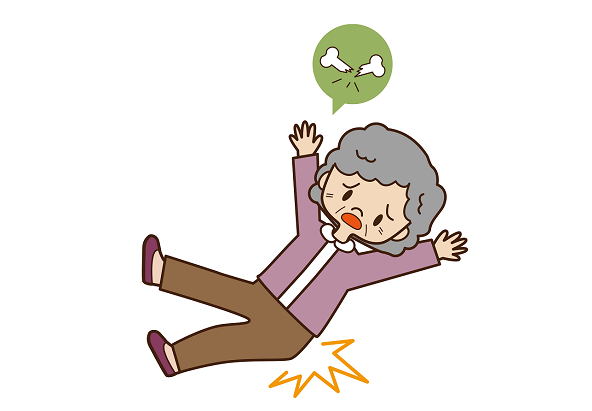 Disclaimer: the material presented in the article below should only be considered as a general overview regarding giving proof to win a slip and fall injury claim. Should you, or anyone you know, find yourself in a slip and fall injury, it’s best that you speak to a slip and fall attorney who’s well versed. He/she can help you decide on the best legal actions to take.
Disclaimer: the material presented in the article below should only be considered as a general overview regarding giving proof to win a slip and fall injury claim. Should you, or anyone you know, find yourself in a slip and fall injury, it’s best that you speak to a slip and fall attorney who’s well versed. He/she can help you decide on the best legal actions to take.
No matter how careful you are, accidents still happen, and many times resulting in injury. Sometimes, however, the accidents that impair us are not our fault, but rather the fault of another. In these cases, you may need to stop working and may lose income; and thus, will certainly will want to be compensated, most especially if your injuries are severe and require medical treatment that you cannot afford. There are instances when your claim could be contradicted by either the person at fault or his/her insurance company. So, what is your best option for legal recourse if contradiction occurs? Below are important criteria you need to know to win a slip and fall injury claim.
Prove the Owner of The Property, Owner’s Agent, or Owner’s Employee’s Negligence & Liability
“Reasonable” is a term that often arises during the different stages of a claim because for an owner, his/her agent or his/her employee to be held “negligent,” either one of them must have failed to act. If they did not act as a prudent person should have acted under the same circumstances that led up to your accident, then they are negligent. When assessing if the defendant reasonably acted, these are some of the factors that you should take into consideration:
- Is the existence of the dangerous obstacle or condition that caused your injury for a long enough duration that a rational owner, agent, or employee could have done something to get rid of the danger?
- Did the owner, agent, or employee implement policies regarding a routine check for any possible hazard on the property? If yes, did they keep a record or log whether standard procedures were followed during the regular inspections before your accident occurred?
- Did the owner, agent, or employee have justification for creating the possible hazard? If yes, did this justification exist during the accident?
- Was there a way that the dangerous obstacle or condition could have been made less threatening through measures that would prevent the accident? Preventive measures such as:
- Relocation of the hazard.
- Placement of adequate warning sign(s) in the area.
- Prevention of access to the area.
- Did the space have decreased lighting or limited visibility, and caused your slip and fall injury?
Prove that you were not Negligent and Caused the Accident Yourself
During your case, you may encounter an instance that the owner of the property, his/her agent, his/her employee, or his/her insurance company will argue that you are wholly or partially liable for the events that resulted to your injury. Most states abide by the rule of “comparative negligence,” in which an argument would be made under the concept of “comparative fault.” This means that if you, in any way, have contributed to the accident that led to the injury, your claim for the injury and any damages may be affected.
In states that follow contributory fault rules, you, the complainant, would not be allowed to collect any amount of compensation if you are found to be partially or wholly responsible for your accident. There are states that follow comparative negligence, where your payment would be decreased by the percentage that is equivalent to your share of liability.
To determine if you may be responsible, in any degree, for causing the injury, here are some of the things that you need to consider:
- Did you have a valid reason for coming to the premises where you’ve been injured? Should the owner, agent, or employee have anticipated your presence?
- Would anyone who would take the necessary precautions while on the premises notice, avoid or handle the dangerous obstacle or condition in any way could have lessened the chances of the accident from happening?
- Did the owner, agent or employee make a barrier or give you a warning of the dangerous obstacle or condition that caused your injury?
- Were you, in any way, engaging in activity that contributed to the accident? Activities such as:
- Talking or texting on your phone.
- Running, jumping or skipping.
- Horseplaying or attempting to ice skate.
- Not paying attention to where you are going.
If the defense of the owner, agent or employee can prove that you have in any way caused the accident because of your carelessness or clumsiness, claiming any amount of compensation would be highly unlikely.
If you’re in any way in need of help with a slip and injury case, always talk to a personal injury lawyer before taking actions. You should contact a lawyer immediately because there is a time limit regarding when you can bring a lawsuit. After talking to a lawyer, you’ll be sure where you stand legally, and you can concentrate on healing and moving on with your life.
Article written by Joanne Reed. Joanne has been writing about law and business for almost a decade, and is currently writing her next big law project. She is an avid sports fan and loves watching games if she has free time.


Comments